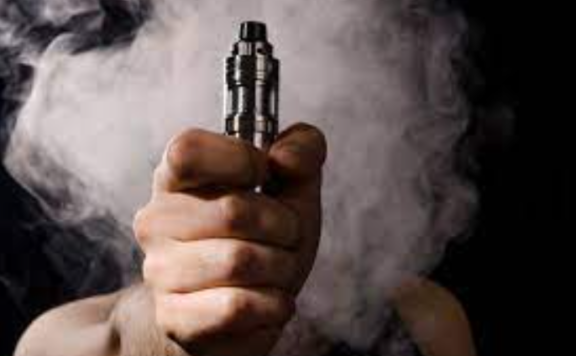Many people consider vaping to be safer when compared to other tobacco products. This is the main reason why vaping products have become very popular among the youth in the recent past. Vaping products have gained popularity in recent times among smokers as cessation tools. they also have gained traction among cannabis-inhaled drug delivery users as a therapeutic device.
However, many recent studies show that vaping products technically known as electronic nicotine delivery systems (ENDS) are not as safe as many people would want to believe. Some contain higher levels of nicotine while most still carry the many adverse effects of traditional tobacco products such as cigarettes.
To help make vaping products safer Professor Nathan Jackson of the mechanical engineering department at the University of New Mexico is teaming up with colleagues to carry out a pilot vape research. The new study dubbed “Droplet and Metal Particle Analysis of ENDS” looks to make vaping safer.
According to professor Jackson vaping products are designed to heat liquid nicotine at higher temperatures to vaporize it. This results in chemical reactions that produce toxic elements such as acrolein and formaldehyde that are known to cause cardiovascular diseases among many other chronic ailments.
Heating liquid nicotine to over 200 degrees Celsius produces many toxic elements which are inhaled as aerosol droplets. Proffer Jackson says that they are working on a method that creates aerosol droplets without having to heat the e-cigarette contents. This eliminates all the harmful substances created by heating the e-liquid.
To solve the problems linked to modern vaping products, Professor Jackson has invented a silicon microfabrication-based atomization technology. Named silicon-vibrating mesh atomizer (Si-VMA), this new technology uses lower heat to produce aerosol droplets. This not only eliminates the ultrafine particles but also eliminates metal particles in the uniform aerosol products it produces as it eliminated the use of a metallic membrane.
Professor Jackson who will lead this new study is confident that their technology will be a game changer in the e-cigarette industry. He says that since this new technology uses a silicon substrate, the e-liquid will not be in contact with any metal during heating. This will go a long way in cutting the number of harmful substances that get in the lungs when people use their vaping products. Furthermore, the vaporization process will use far less heat. This will in effect avoid situations where the e-liquid contents will react to form harmful substances that are associated with many health risks. The biggest difference this new technology has with current vaping technology he says is the fact that instead of generating nano-scale droplets that current vaping products generate it will produce micro-scale droplets. This will reduce the chances of the vape droplets entering the bloodstream, and clustering together. This will make it much safe to use vaping products than it currently is.
Besides Professor Jackson, the team carrying out this new study will include Katie Zychowski of UNM’s College of Nursing and Pavan Muttil of UNM’s School of Pharmacy. The team believes that the technology they are working on is safer for both medical and recreational uses. They hope that it will go a long way in reducing health costs that are linked to vaping as we move into the future.





